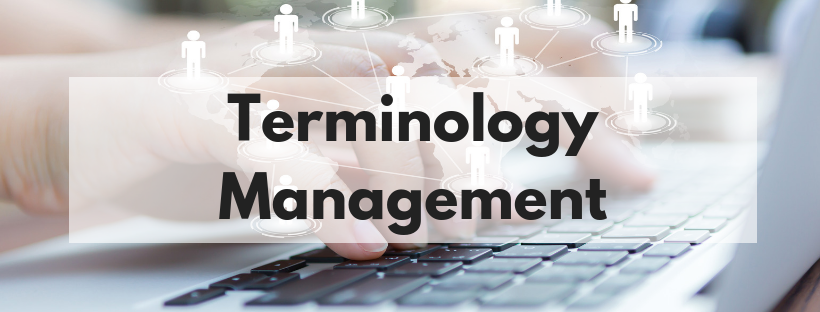Terminology Management
We define terminology as the study of terms and their use in text. Many companies have a set collection of terms that they use to consolidate their brand across platforms and aid continuity. However, when translating those terms, the true meaning can be lost. For language service providers in particular the localization of acronyms, abbreviations and synonyms can cause a lot of issues. This is true especially when translating them without a clear understanding of the intended meaning or context. With terminology management, we can effectively and accurately translate texts by organising these terms with a pre-determined set of rules for their usage and ensure the correct term is always used in the correct context.
Creating a Termbase
The first and most important step in terminology management for language service providers is creating a termbase. A termbase is essentially a database for managing the approved terms for both source and target languages in translation. These termbases are stored within CAT tools, making them easily accessible. Using a termbase alongside your translation tools ensures your translations are accurate and consistent with past and future texts. Knowing and doing this can help you become more productive and maintain client satisfaction!
Benefits of Terminology Management
As we mentioned before, many clients will have an established set of brand guidelines and standards that all their content fits into, and as a result, your translation must also fit these guidelines. If left unmanaged, your terminology may become inconsistent and lead to competing definitions within translations, meaning they cannot be stored and reused in translation memory. In not being able to leverage terminology, your translations may become more time and resource consuming, whilst also potentially wasting your investment in translation technologies which may affect your ability to accept a higher volume of work. Translation management is particularly important in specialised translation such as medical and legal translations, where ambiguity and inconsistency can have serious consequences.
Terminology Management vs Translation Memory
Though similar, terminology memory and translation memory differ in their use for language service providers. Terminology management tools are databases in which you can search for terms appropriate for both the task and the client, as it stores a list of approved terms and their rules of use. This process is known as Active Term Recognition. Alternatively, translation memory tools store segments of text as translation units of source and target pairs. That said, the two are often used together to great effect!
At TransGlobe International, we ensure that all terminology is effectively managed for all of our projects; from first time customers to returning clients, meaning that you are guaranteed to get the perfect translation, every time. As part of our service offering, we offer specialised translation in legal, medical, IT, gaming and automotive translation where terminology management is of the utmost importance.
For more on how we can help you perfect your translation and globalisation efforts, contact us at hello@transglobeinternational.com.


Trackbacks/Pingbacks